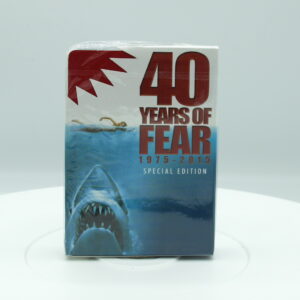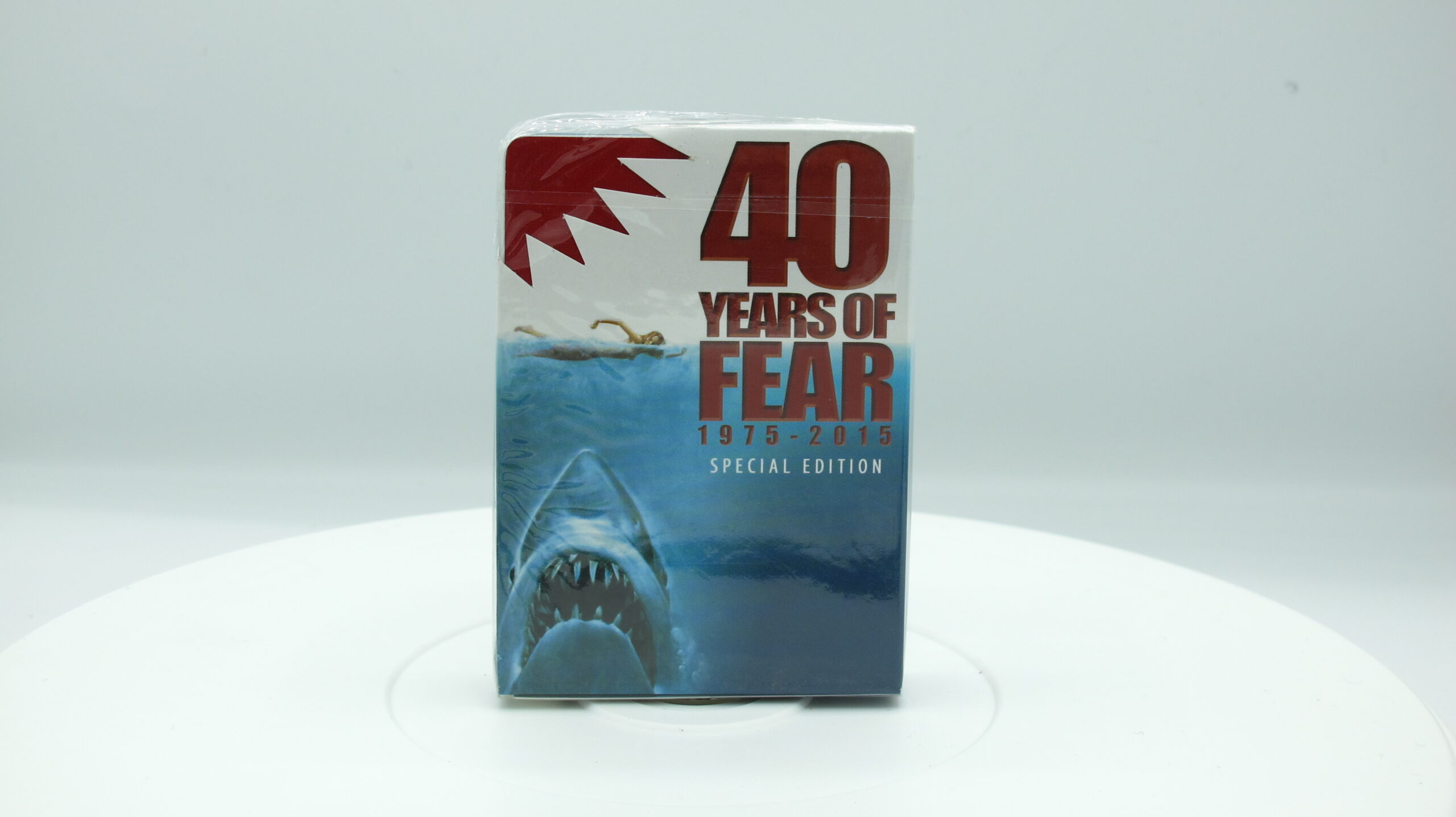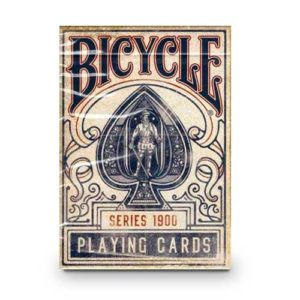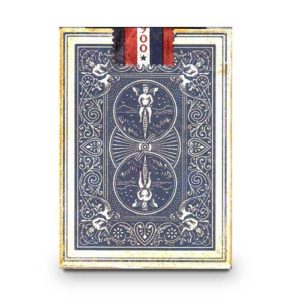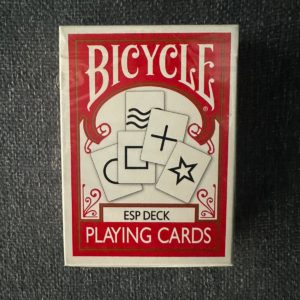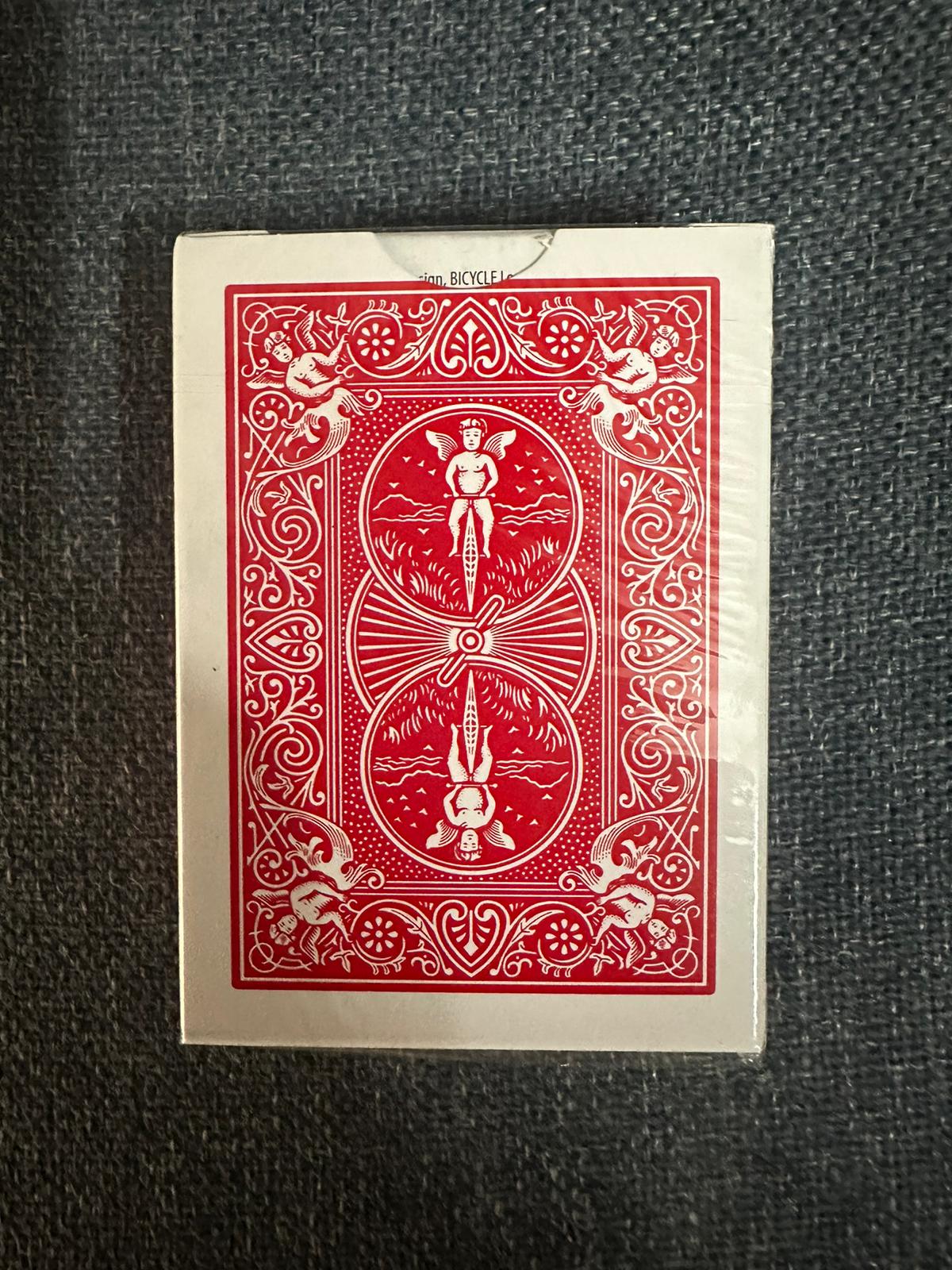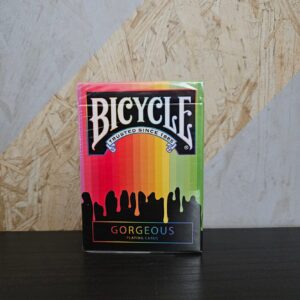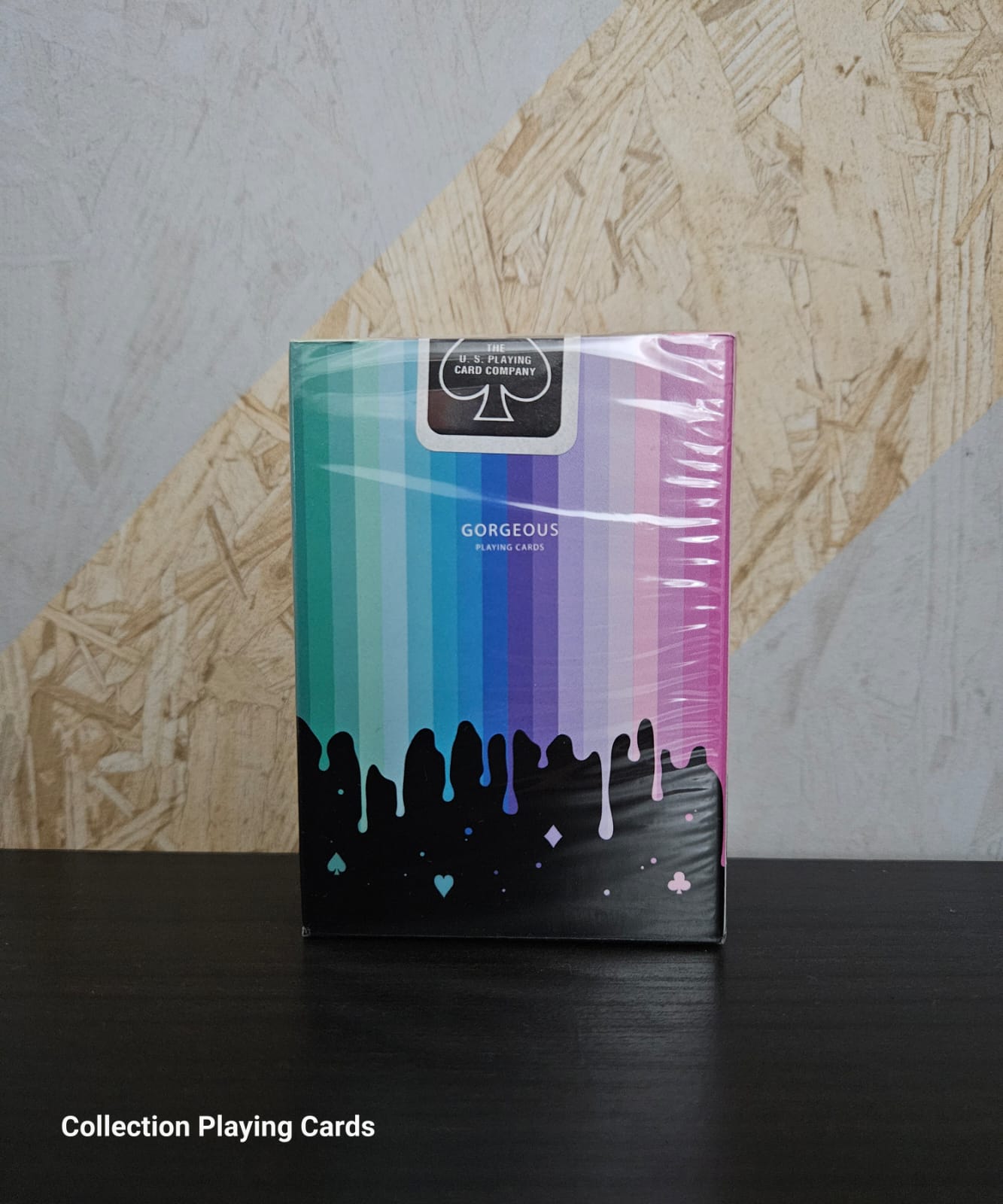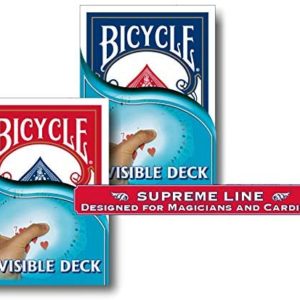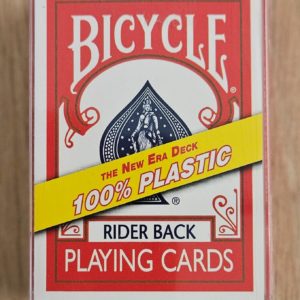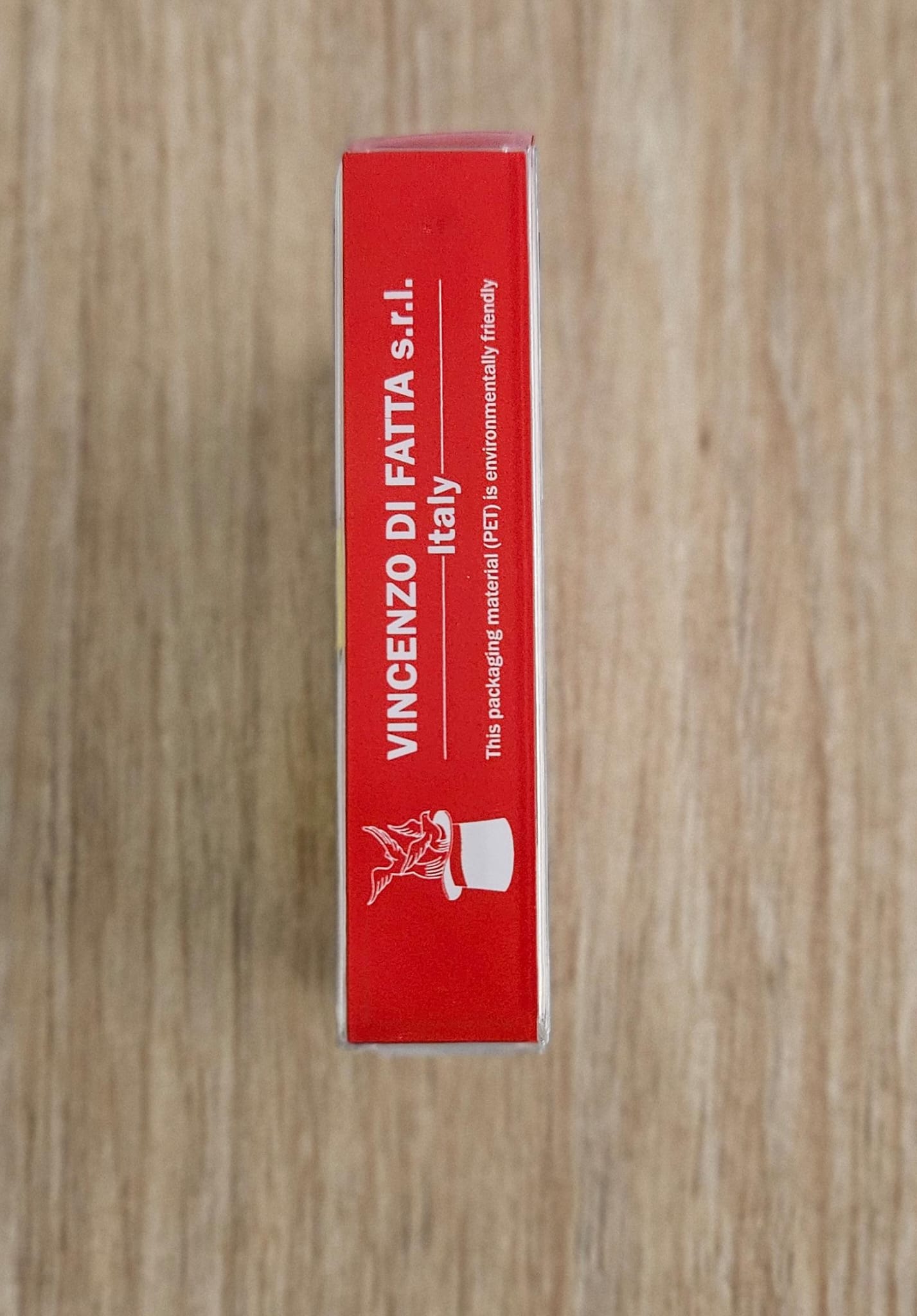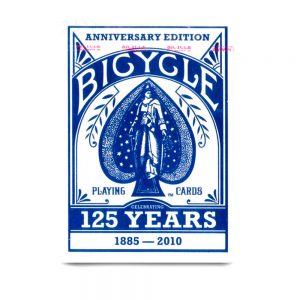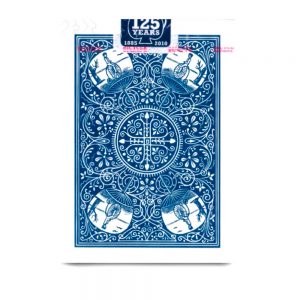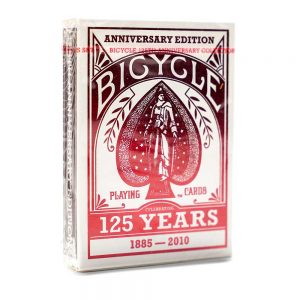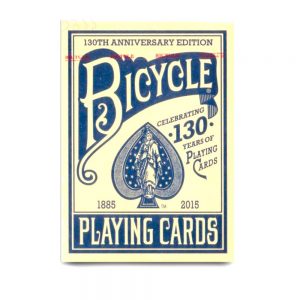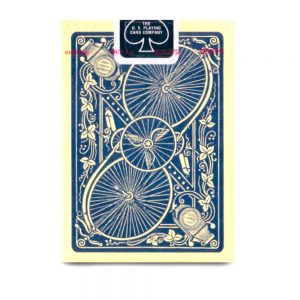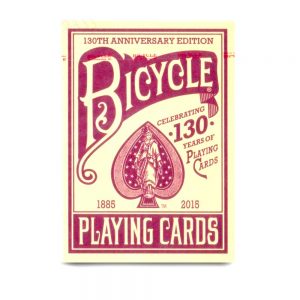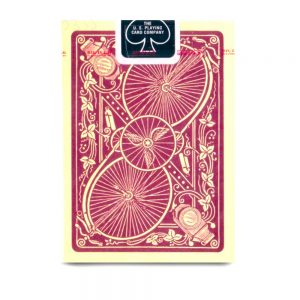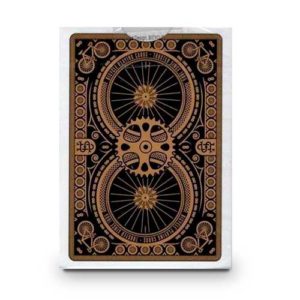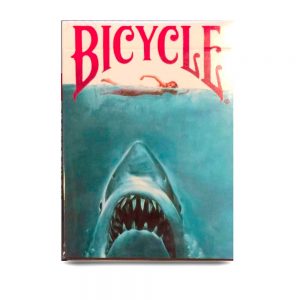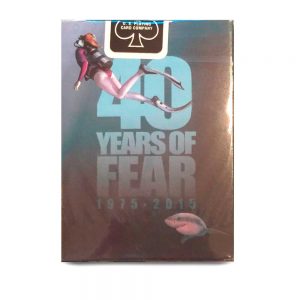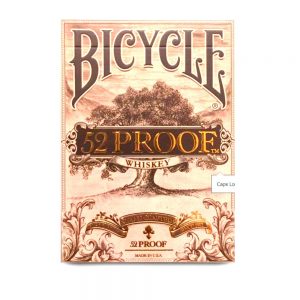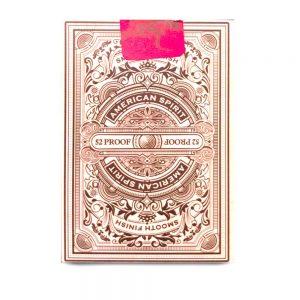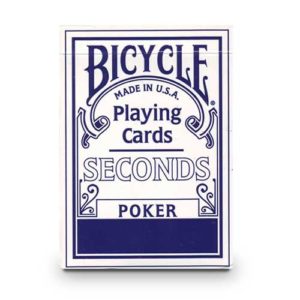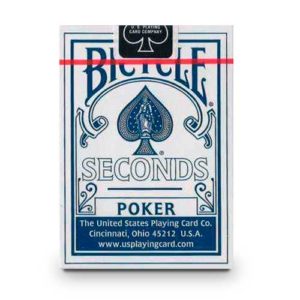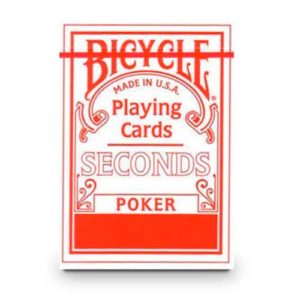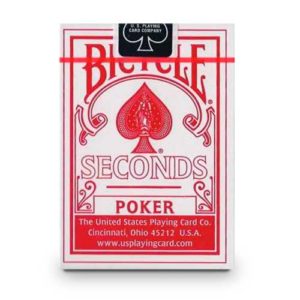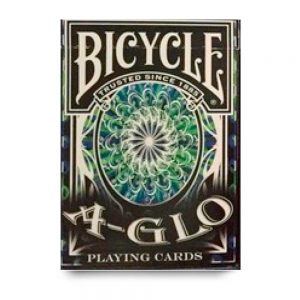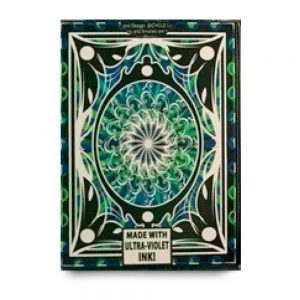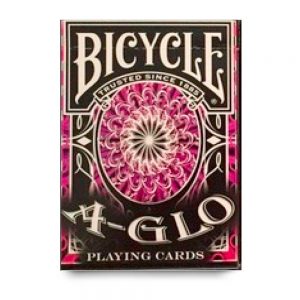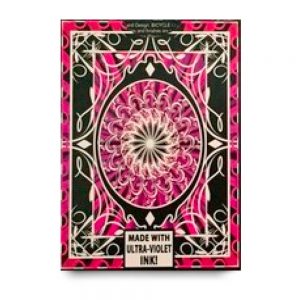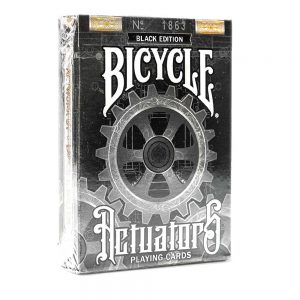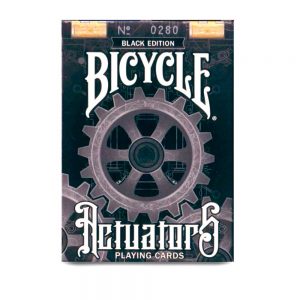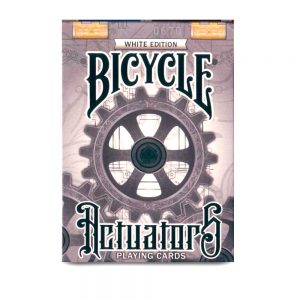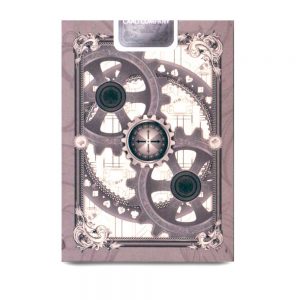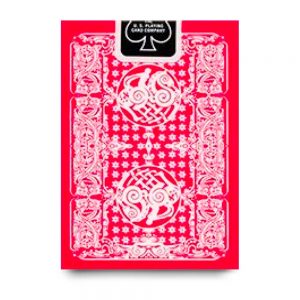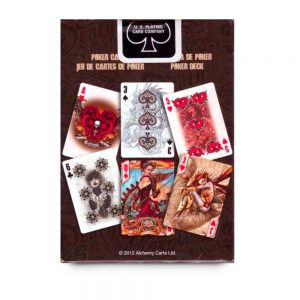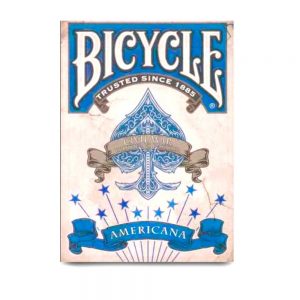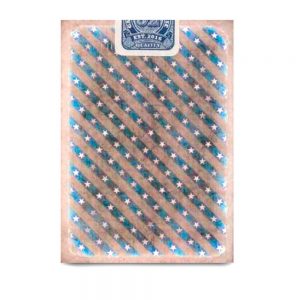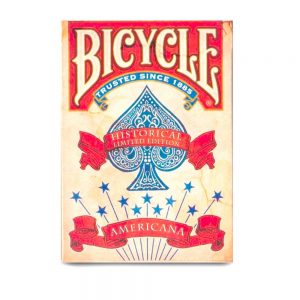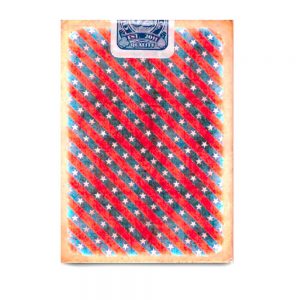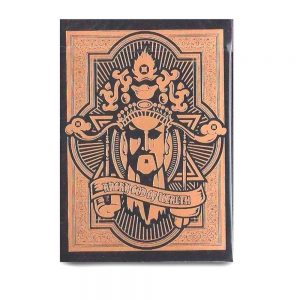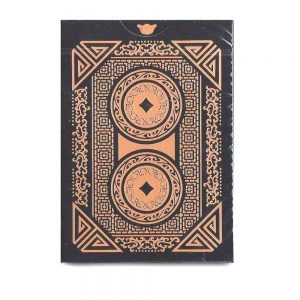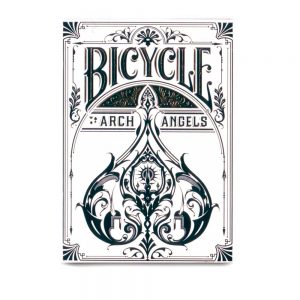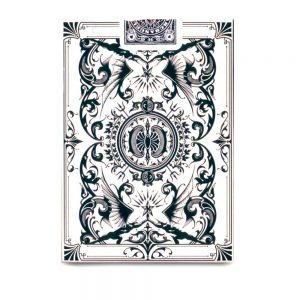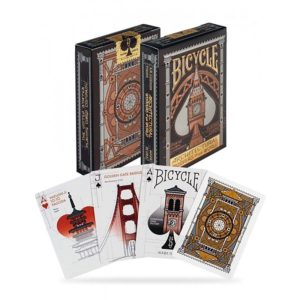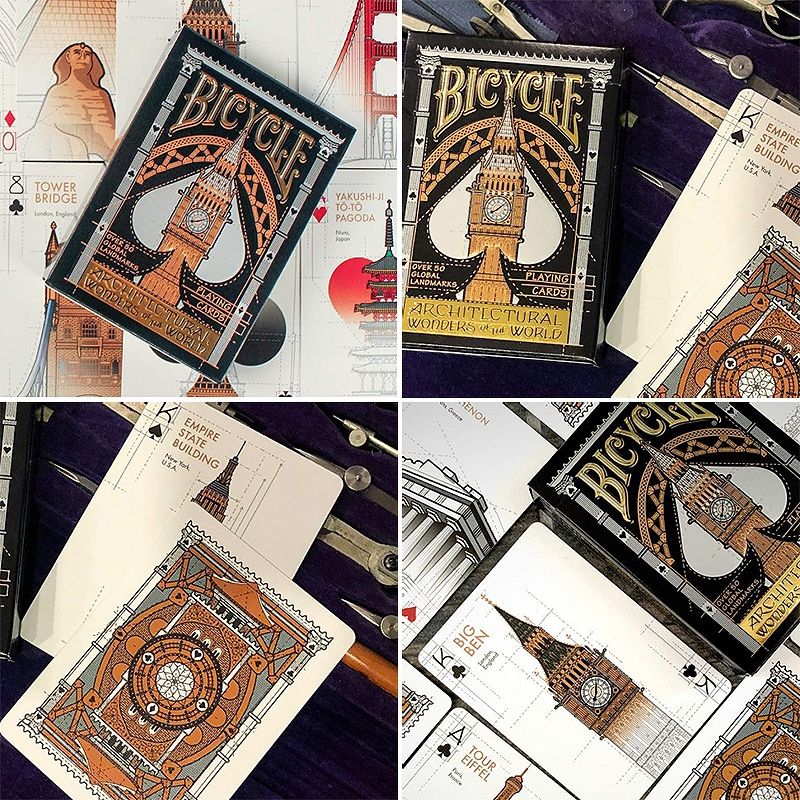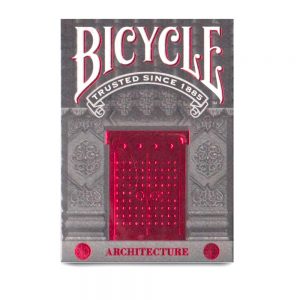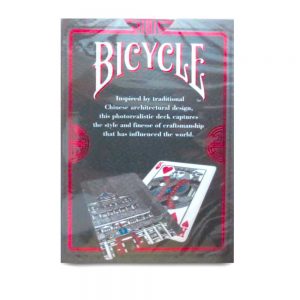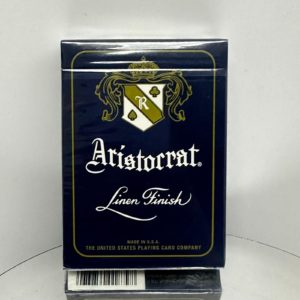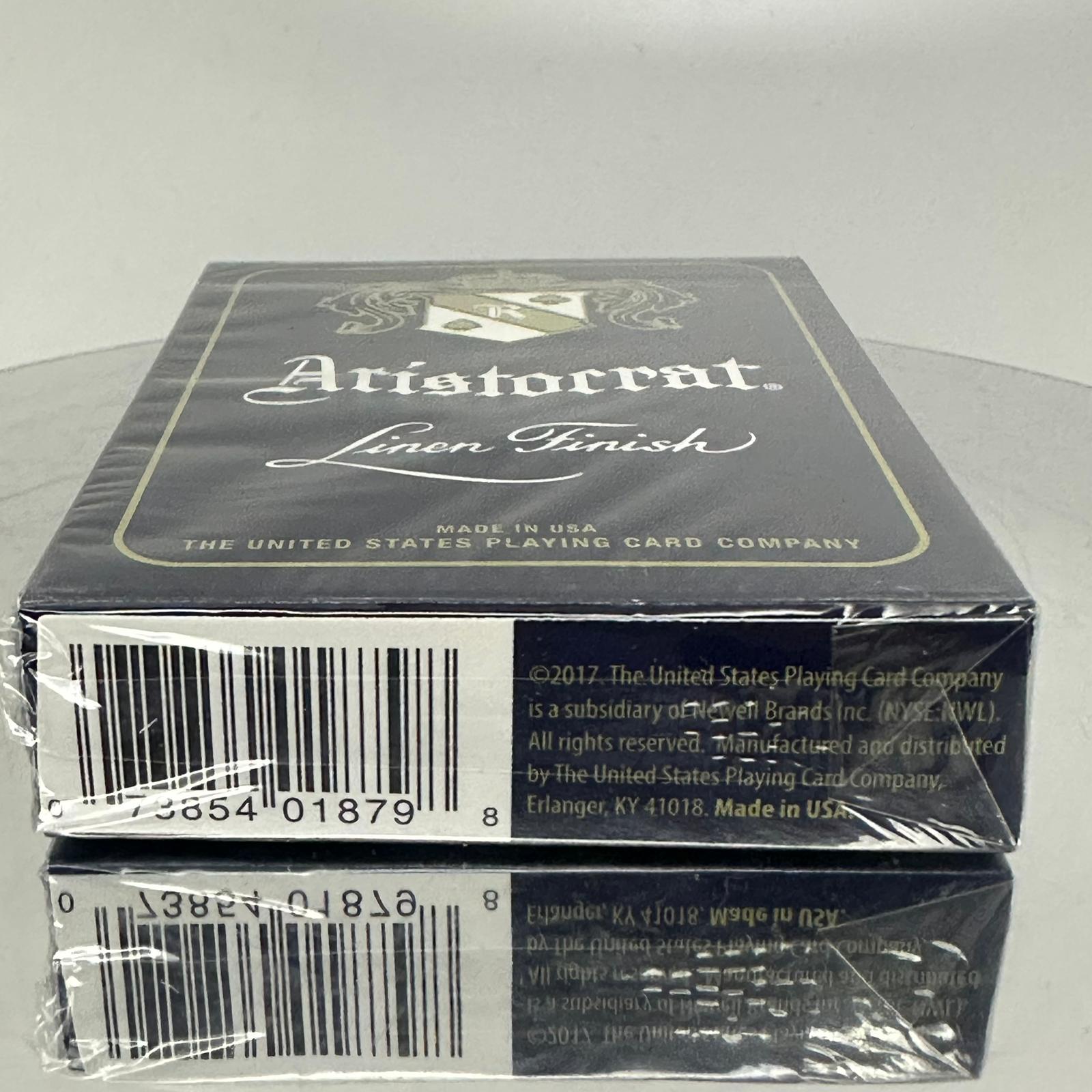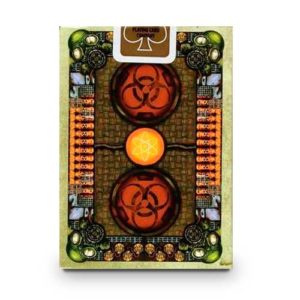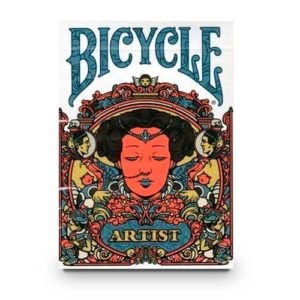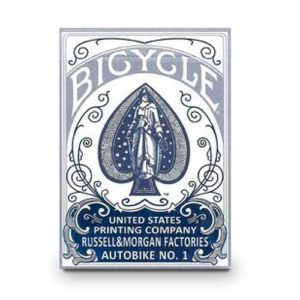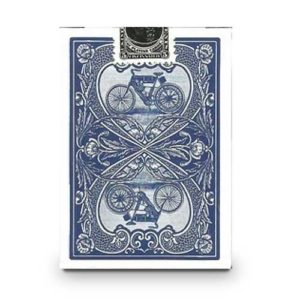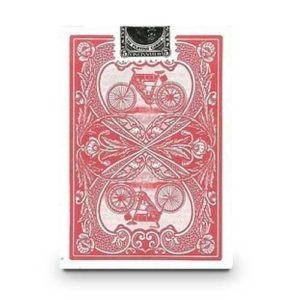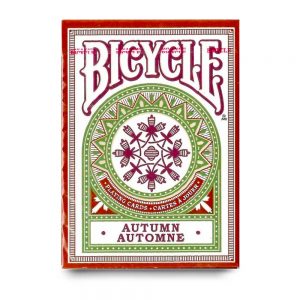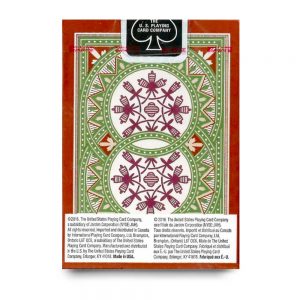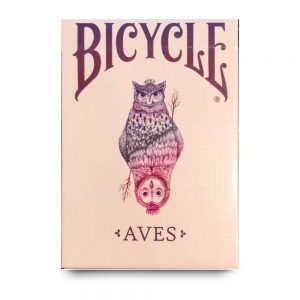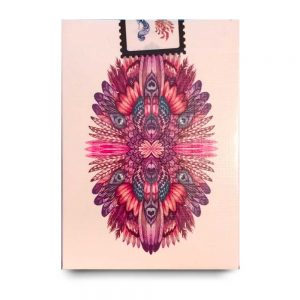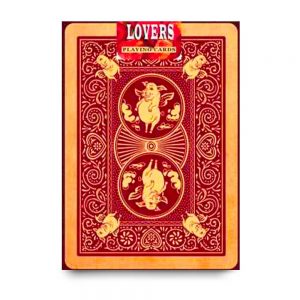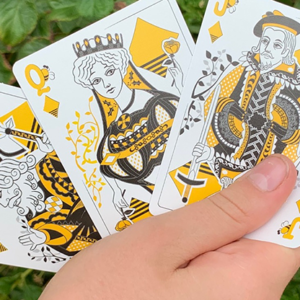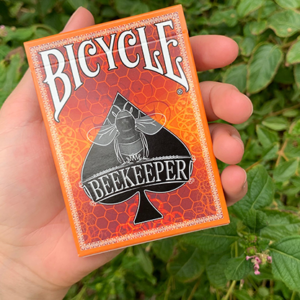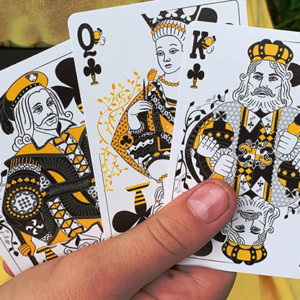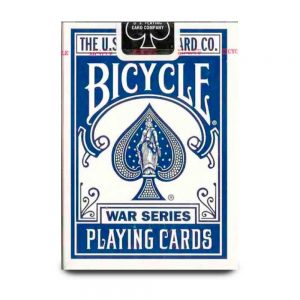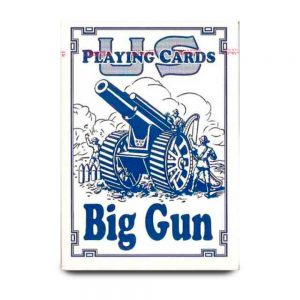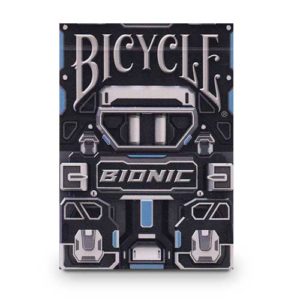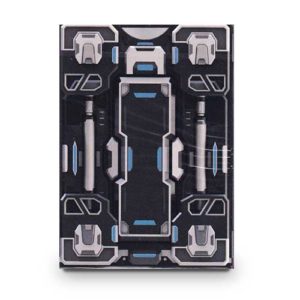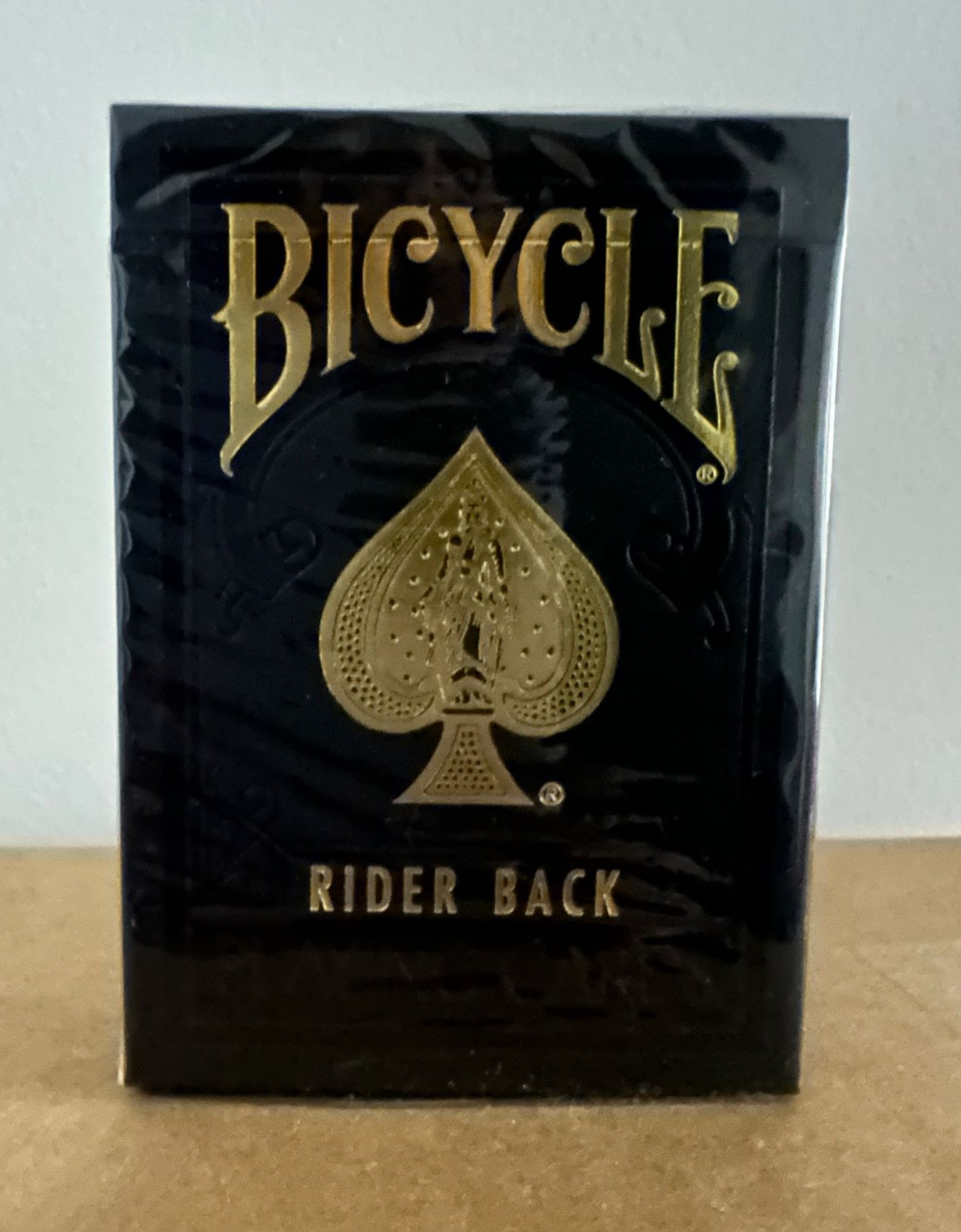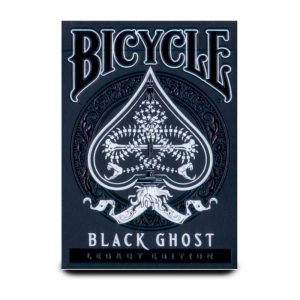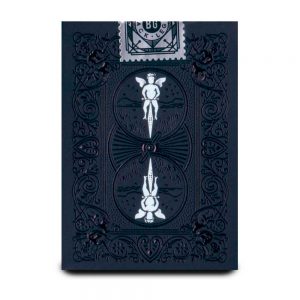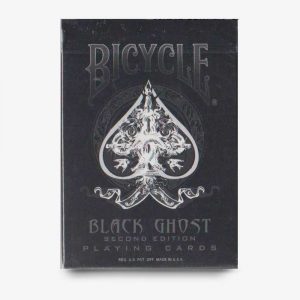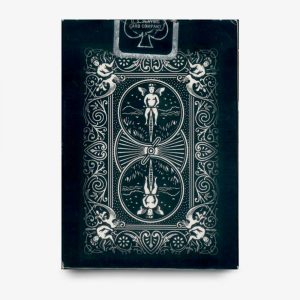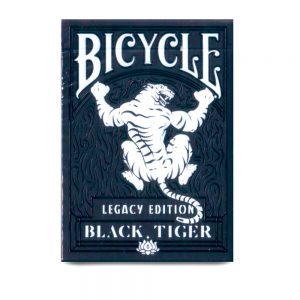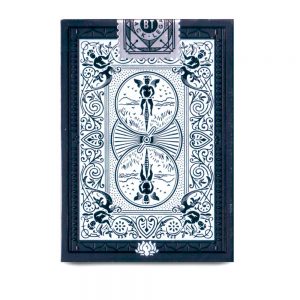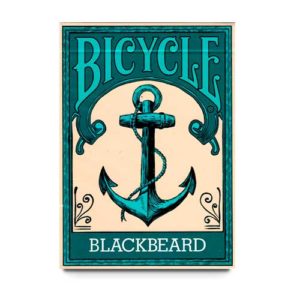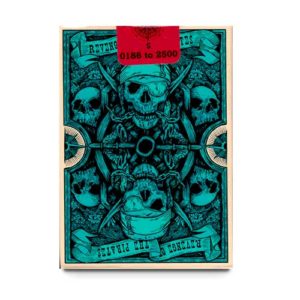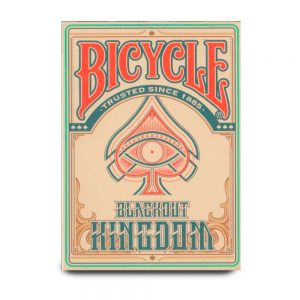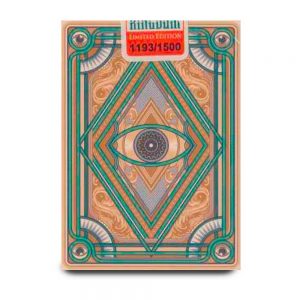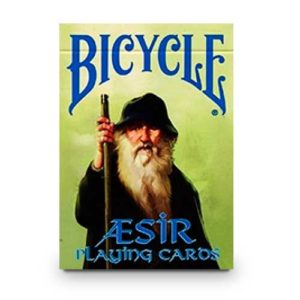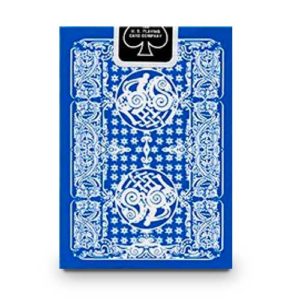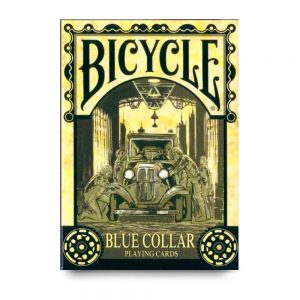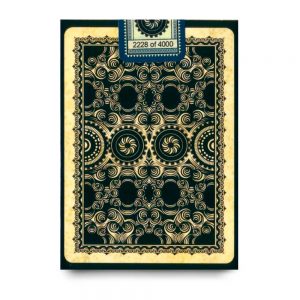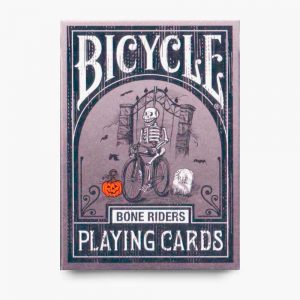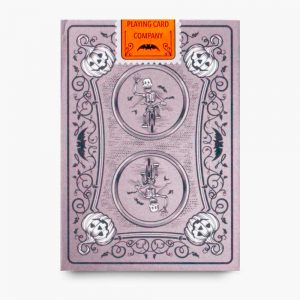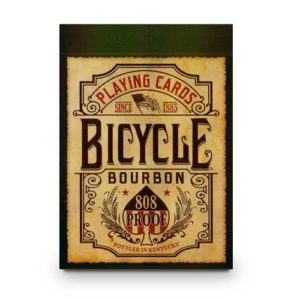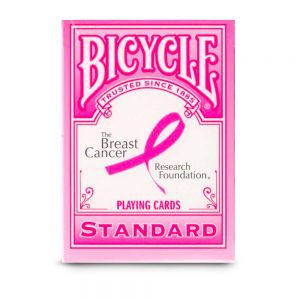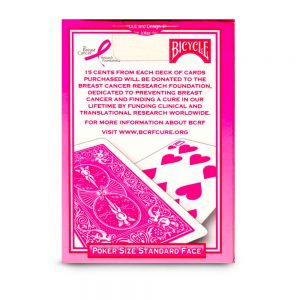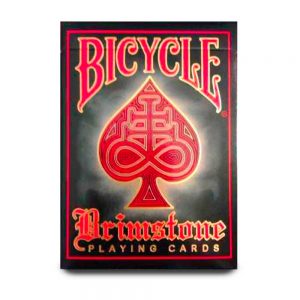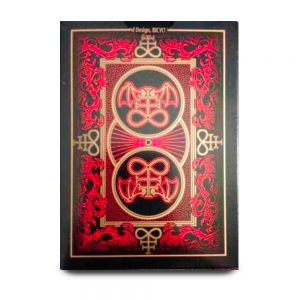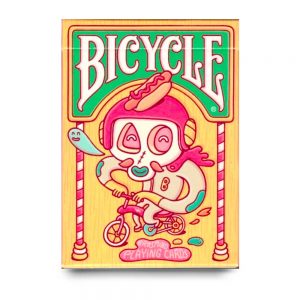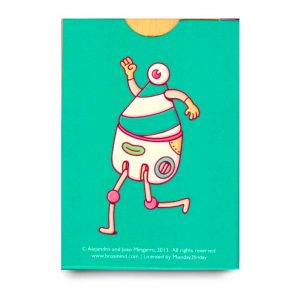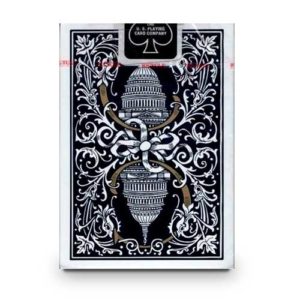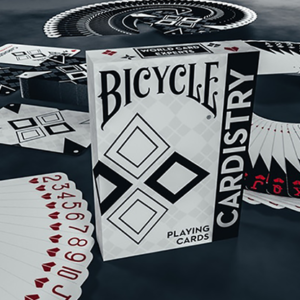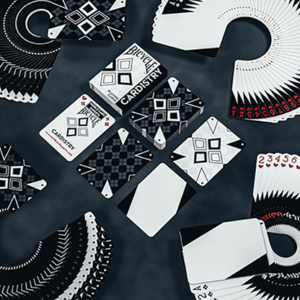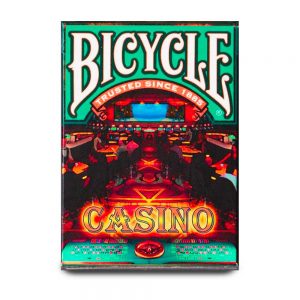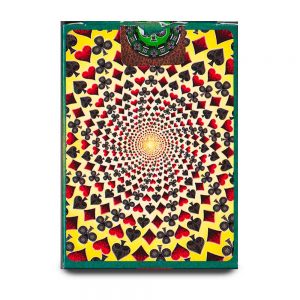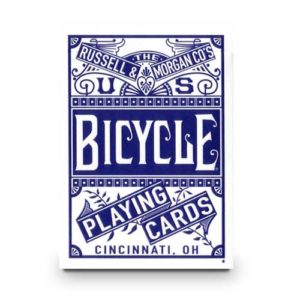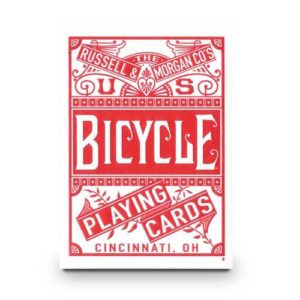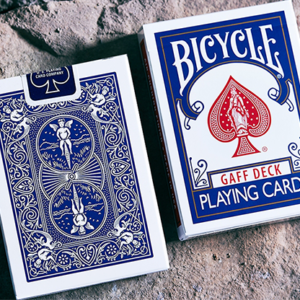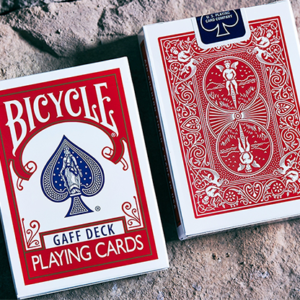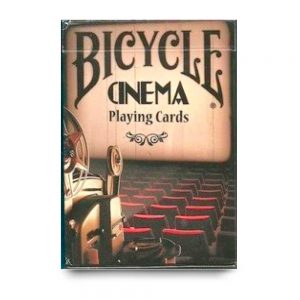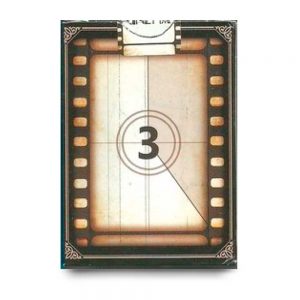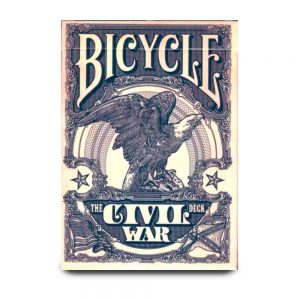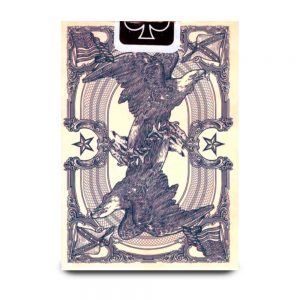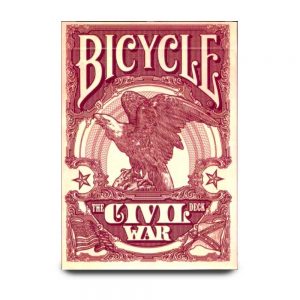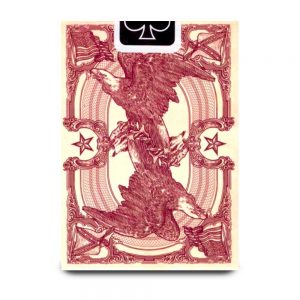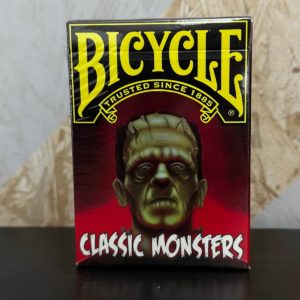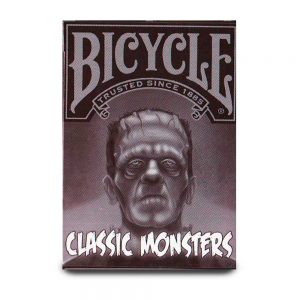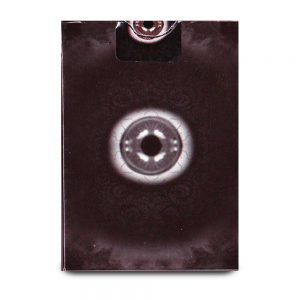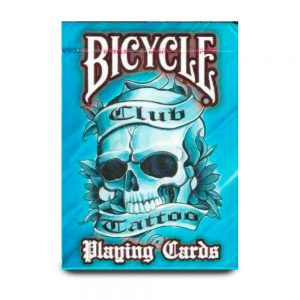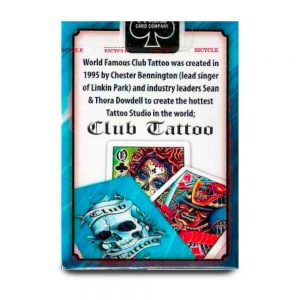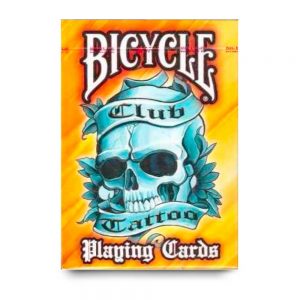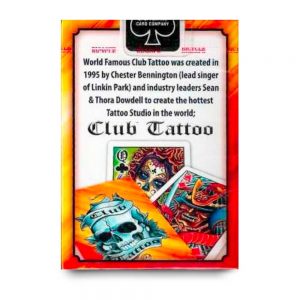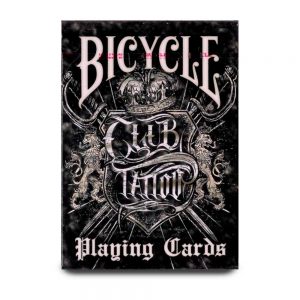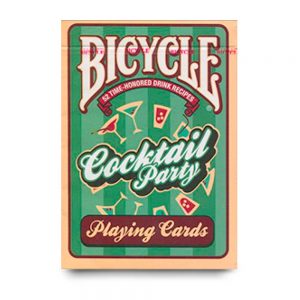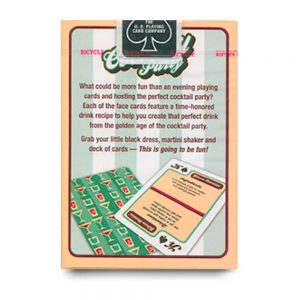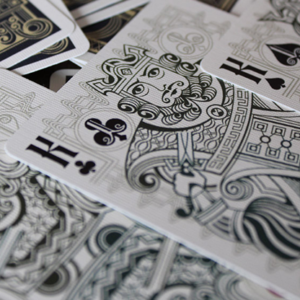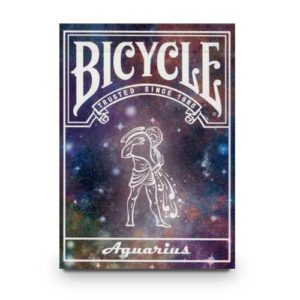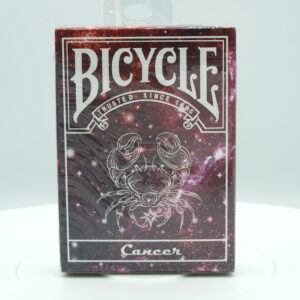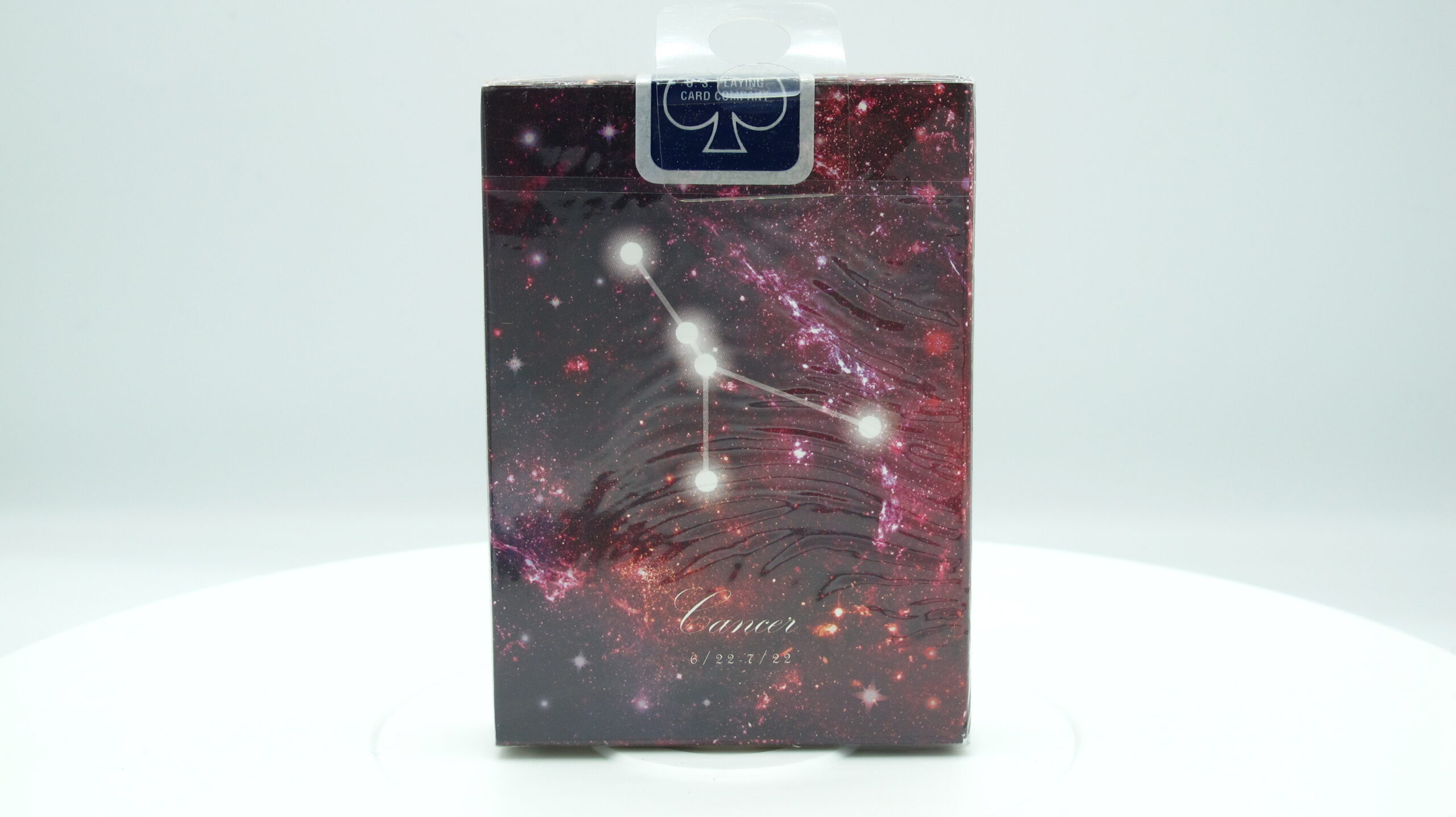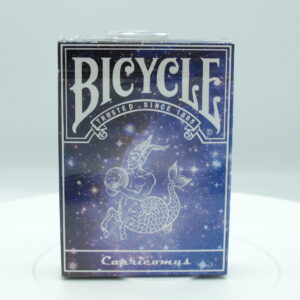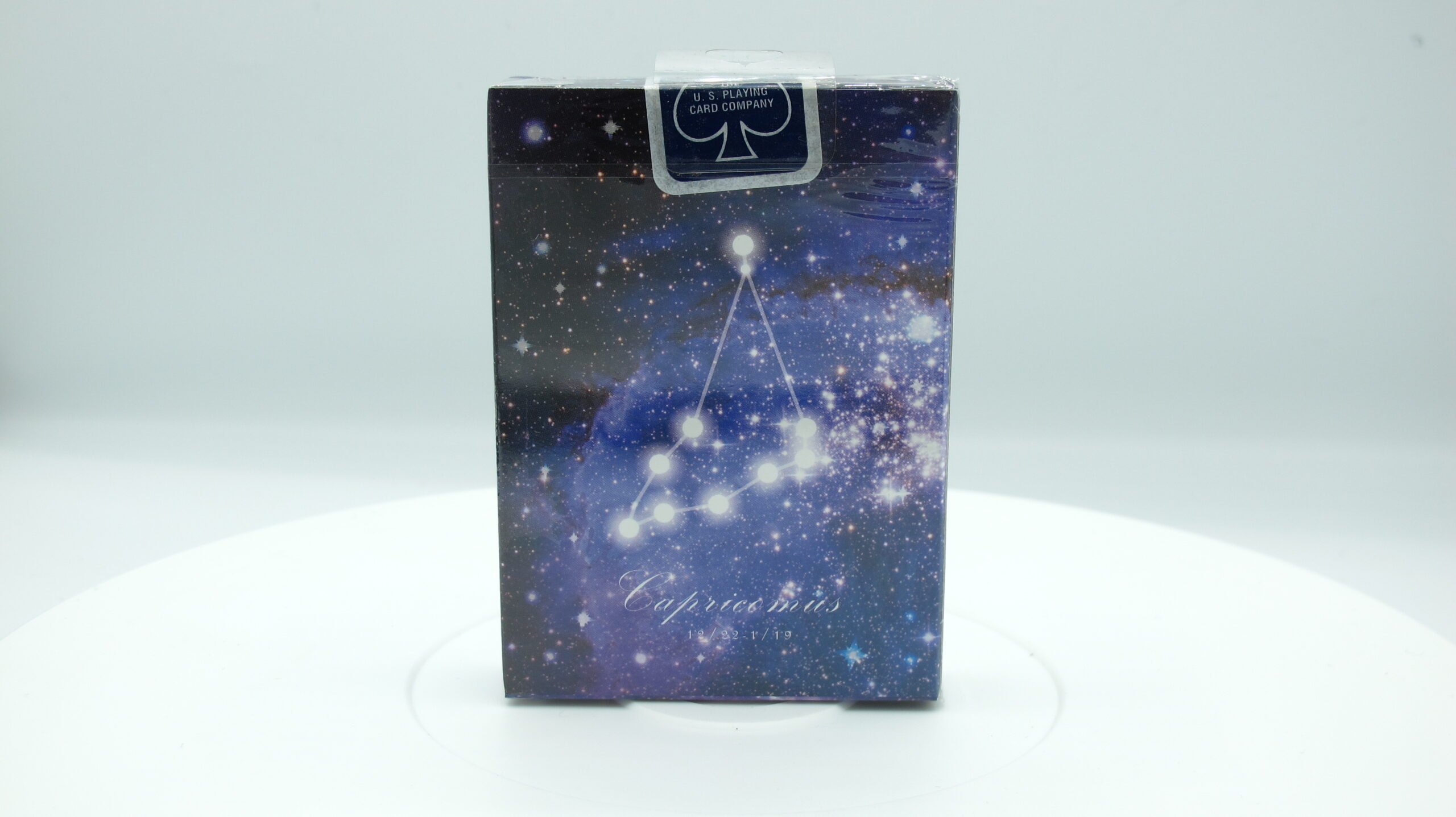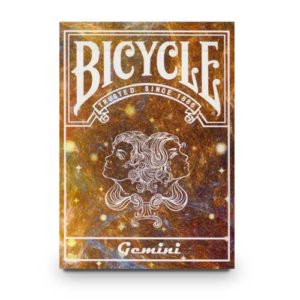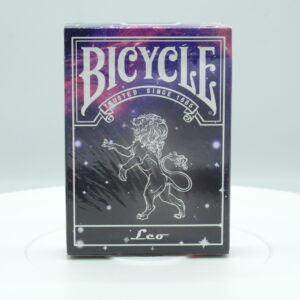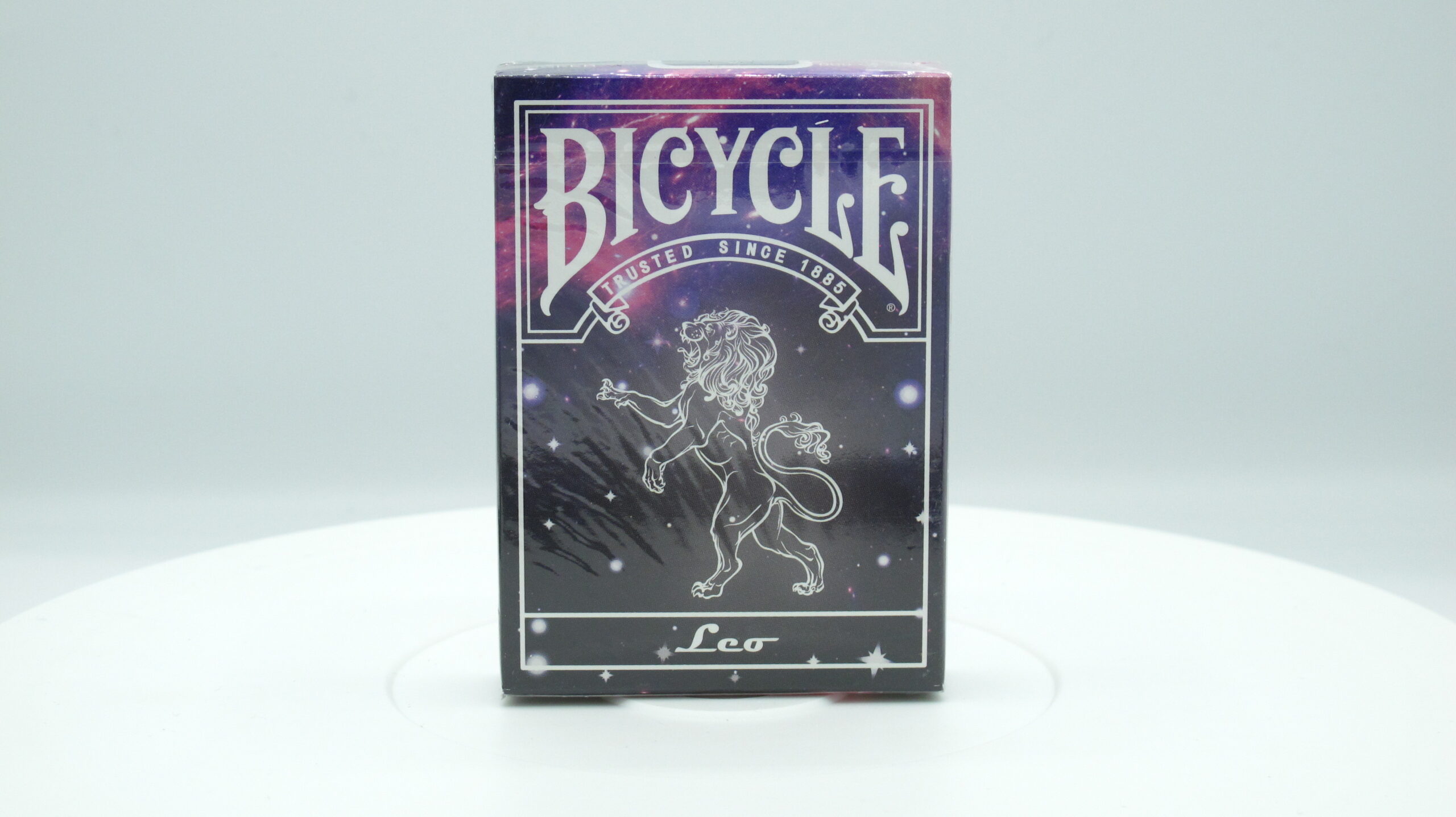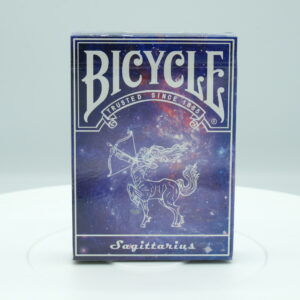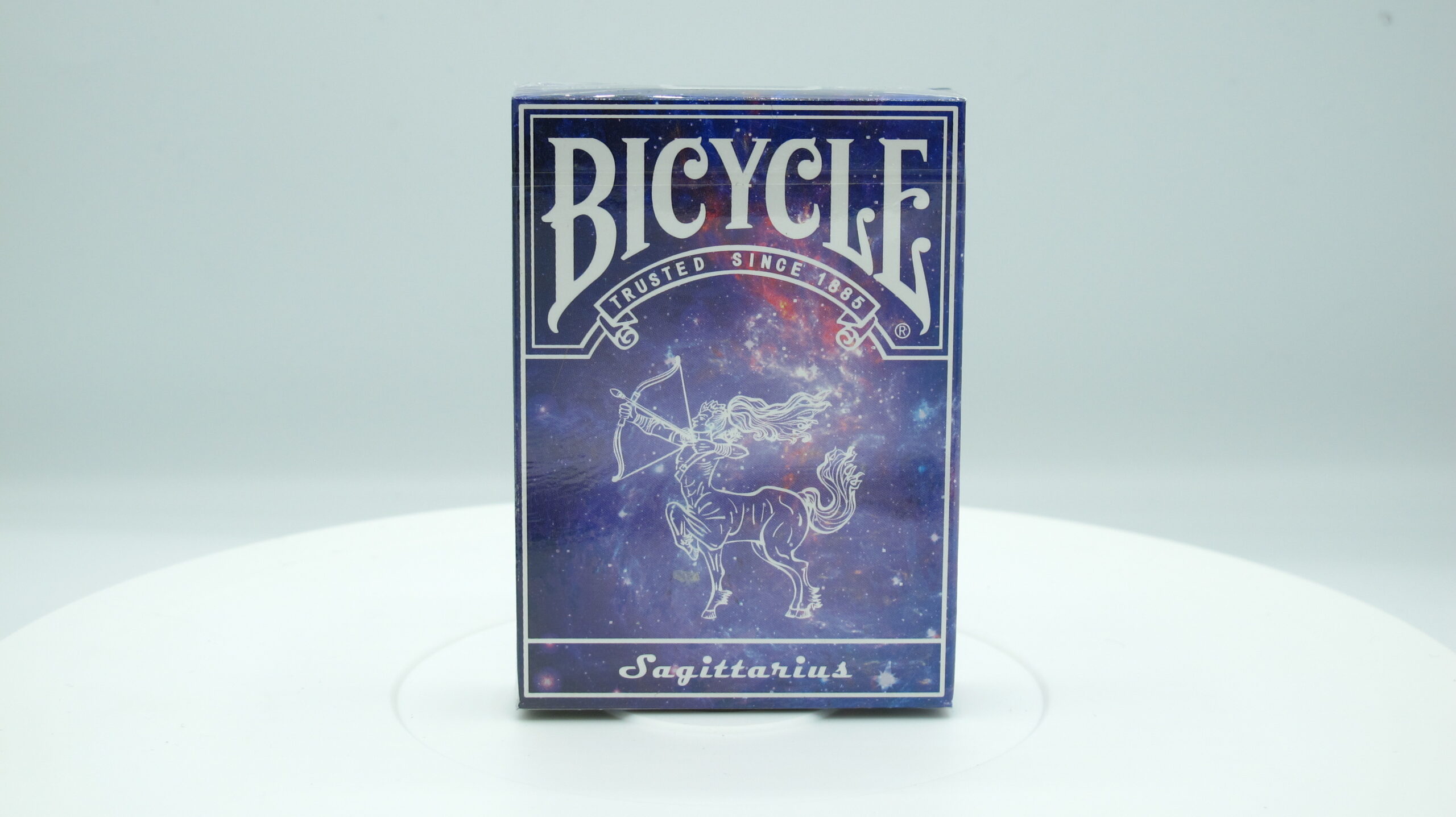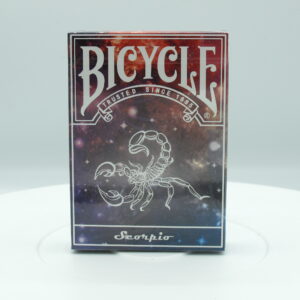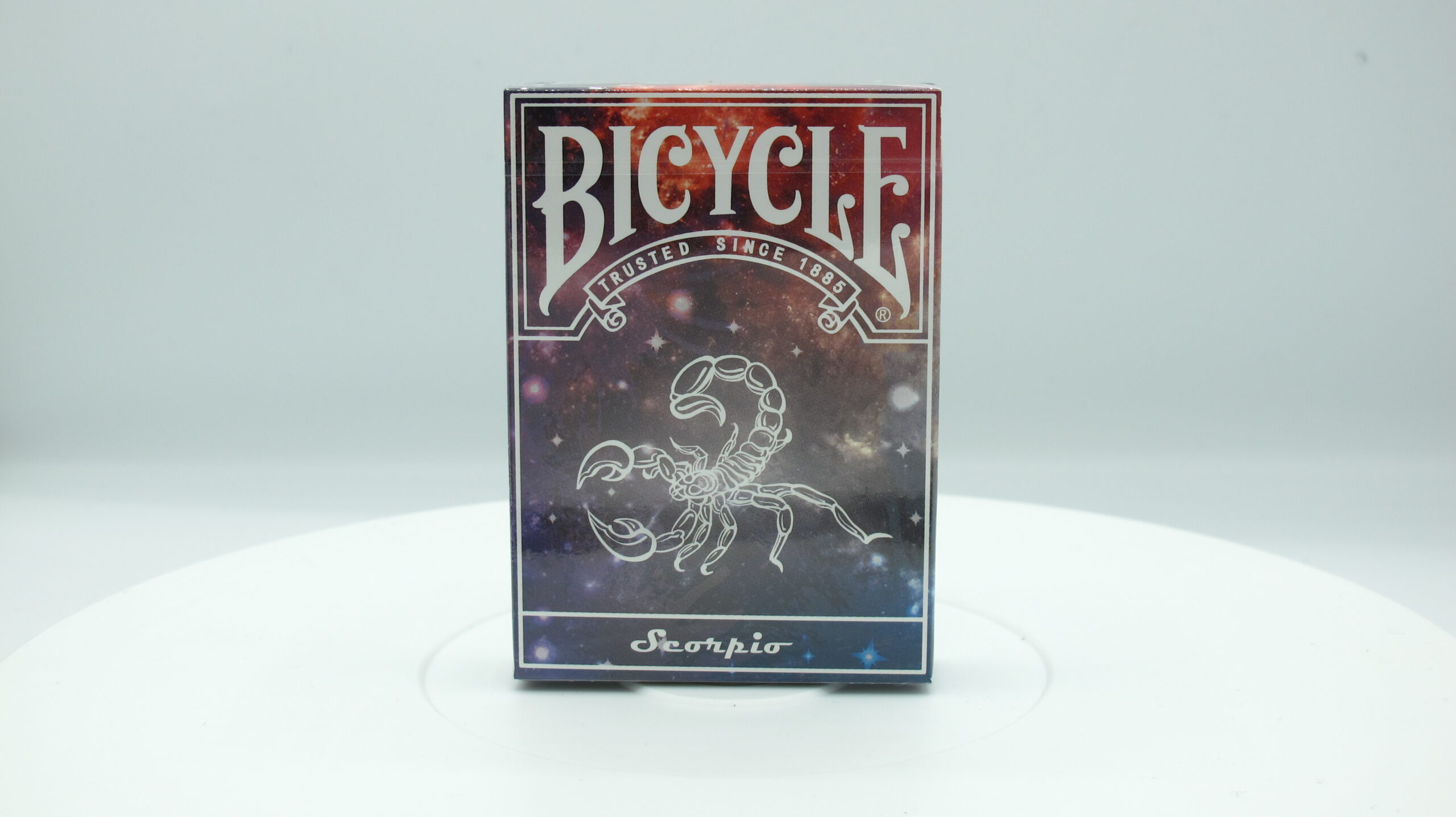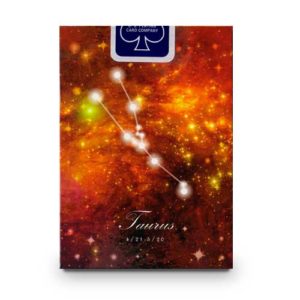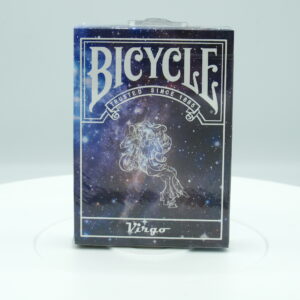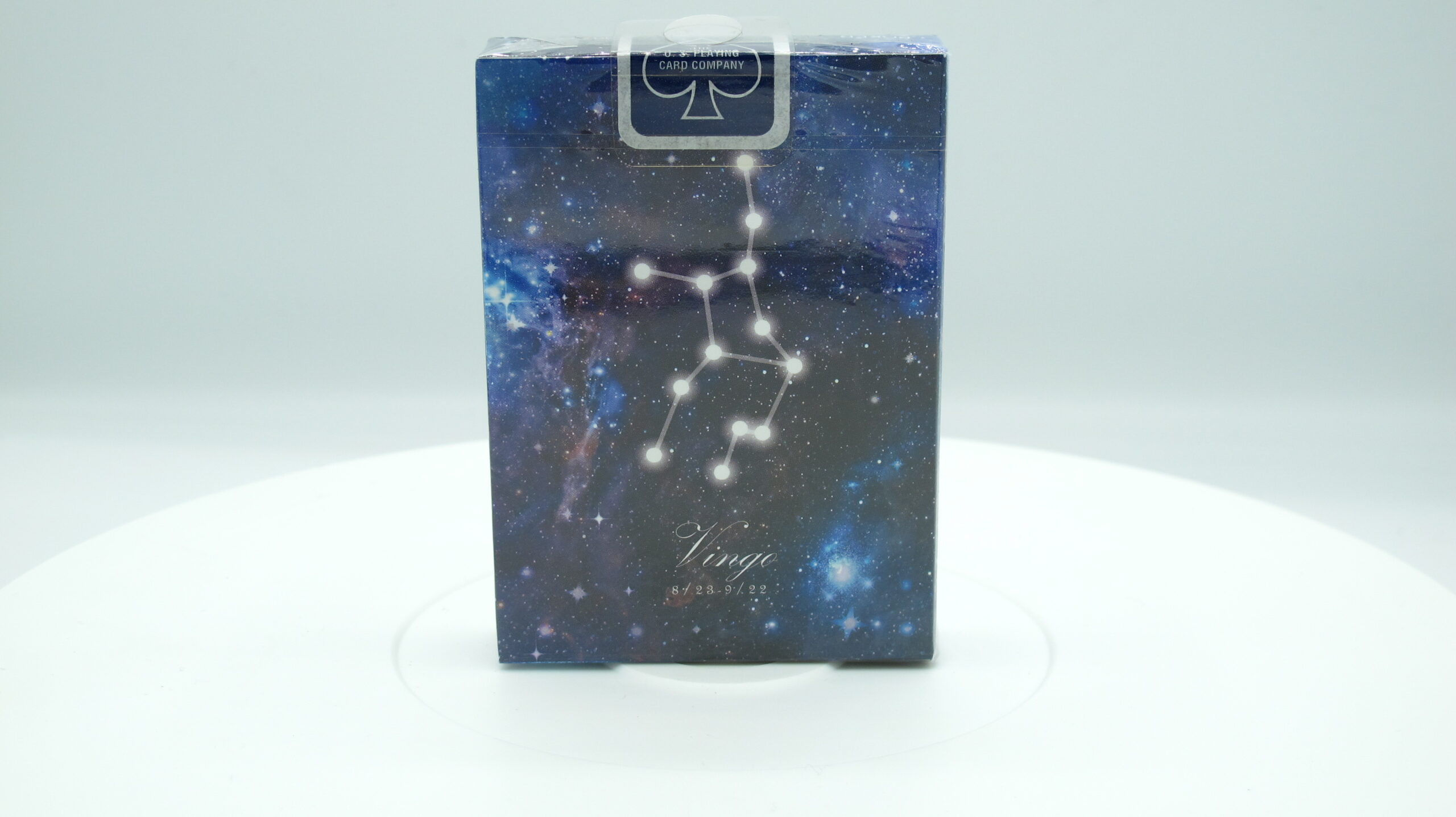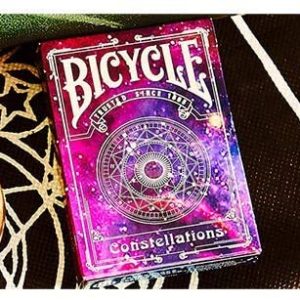Bicycle
Bicycle Playing Cards
Bicycle Playing Cards (stock No. 808) are the USPCC’s signature brand of playing cards. Since 1885, the Bicycle brand has been manufactured by the United States Printing Company. The Bicycle name originates from the first back design which featured penny-farthings.
Bicycle playing cards are a standard 52-card deck of red and black colored cards. each of the cards may have one of the four suits: spades, clubs, diamonds, and hearts. The numbers on the cards range form 2 to 10, then proceed onto “Jack.” The Bicycle trademark is typically printed on the Ace of Spades. Most standard Bicycle playing card decks come with the hand ranks of poker, an information card, and 2 Jokers. Please note most custom Bicycle playing cards will contain 2 Jokers and 2 additional cards that contain advertising or can be used for magic tricks.
Bicycle playing cards history (from official website)
JANUARY 1867
Our long, rich history began when A. O. Russell, Robert J. Morgan, James M. Armstrong and John F. Robinson Jr. formed a partnership and purchased from the proprietors of The Cincinnati Enquirer what was then known as the Enquirer Job Printing Rooms. The spaces occupied the first and second stories of the building at 20 College Street in Cincinnati, Ohio. The firm commenced business as Russell, Morgan & Co., referring to the two printers in the partnership.
While on College Street, the firm printed theatrical and circus posters, placards and labels. By 1872, the business had increased so much, it was forced to seek larger quarters, and in November 1872, it moved into a new, four-story building on nearby Race Street in downtown Cincinnati.
EARLY IN 1880
Mr. Russell proposed to his partners that they embark upon the manufacture of playing cards, an industry monopolized by several East Coast companies. The partners agreed and arrangements were made to add two additional stories to their building, making it six stories high. Many new machines were designed and built expressly for Russell, Morgan & Co. The first deck of playing cards was completed on June 28, 1881. About 20 employees manufactured 1600 packs per day.
IN 1891
Russell, Morgan & Co. became The United States Printing Company. Only three years later (1894), the playing card business had grown to such proportions that it was separated from the Printing Company, becoming The United States Playing Card Company.
The United States Playing Card Company gained immediate advantages, for it acquired other notable companies: The Standard Playing Card Co (Chicago), Perfection Card Co (New York) and New York Consolidated Cards Company. New York Consolidated Card Company had antecedents dating back to 1833 when Lewis I. Cohen perfected his four-color press for printing playing cards. The famous “Bee”® Playing Cards still issued by The United States Playing Card Company, had originated at the New York Consolidated Card Company in 1892.
Congress® playing cards is one of the original brands from 1881 which is still in production today and the card of choice for sophisticated bridge players. Likewise, the world-renowned Bicycle® playing card brand has been in continuous production since 1885.
THE JOKER
The Joker is an American invention dating from about 1865 and has made different appearances in the Bicycle® card line. The first type represented a man on a high-wheeled bike. The bicycle later acquired two wheels of normal size. Then followed a series of playing card kings on bikes. These cyclists wheel past a milestone marked “808.” Contrary to some opinions, this number has no mystical meaning. It is merely a reference number distinguishing this brand from others (such as “606”) by the same company.
STATUE OF FREEDOM
The Ace of Spades carries another code, identifying the year in which the deck was printed. This Ace features, within the suit sign, a woman who rests her right hand on a sword and shield while she holds an olive branch in her left. The image was inspired by Thomas Crawford’s sculpture, “Statue of Freedom.” which, in 1865, had been placed atop the Capitol Building in Washington, DC.
BY 1900
The United States Playing Card Company expanded again, moving from downtown Cincinnati to a newly built factory in Norwood. Situated on over 30 acres, the facility would eventually accommodate over 600,000 square feet of manufacturing operations.
BELL TOWER
A Neo-Romanesque bell tower (4-stories high) was built in 1926 atop the company’s 4-story main building entrance. This tower housed a fine set of 12 carillon bells, ranging in size from 1-1/2 to 5-1/2 feet. This was the first set of chimes built for radio broadcasting. The chimes were connected electronically to radio station WSAI, which was owned and operated by The United States Playing Card Company from 1922 until 1930 and located within The United States Playing Card Companycomplex. The main reason for the radio station was to promote the game of bridge by broadcasting bridge lessons. In those days, there was no limitation on the range of radio power and the WSAI transmission was so clear and strong that it could be picked up as far away as New Zealand. WSAI was eventually sold in the 1930’s to the Crosley Radio Corporation.
WORLD WAR II
During World War II, the company secretly worked with the U. S. government in fabricating special decks to send as gifts for American prisoners of war in German camps. When these cards were moistened, they peeled apart to reveal sections of a map indicating precise escape routes. Also during the war, The United States Playing Card Companyprovided “spotter” cards, which illustrated the characteristic shapes of tanks, ships and aircraft from the more powerful countries. The company further assisted by sewing parachutes for anti-personnel fragmentation bombs.
ACE OF SPADES
The Ace of Spades served a famous purpose in the war in Vietnam. In February, 1966, two lieutenants of Company “C,” Second Battalion, 35th Regiment, 25th Infantry Division, wrote The United States Playing Card Company and requested decks containing nothing but the Bicycle® Ace of Spades. The cards were useful in psychological warfare. The Viet Cong were very superstitious and highly frightened by this Ace. The French previously had occupied Indo-China, and in French fortunetelling with cards, the Spades predicted death and suffering. The Viet Cong even regarded lady liberty as a goddess of death. USPC shipped thousands of the requested decks gratis to our troops in Vietnam. These decks were housed in plain white tuck cases, inscribed “Bicycle® Secret Weapon.” The cards were deliberately scattered in the jungle and in hostile villages during raids. The very sight of the Bicycle® Ace card was said to cause many Viet Cong to flee.
IN 1986
The company acquired Heraclio Fournier, S.A., the largest playing card manufacturer in Europe. In 1987, The United States Playing Card Company acquired Arrco Playing Card Company, the third largest playing card manufacturer in the country. International Playing Card Company, a Canadian subsidiary of The United States Playing Card Company since 1914, maintained its own manufacturing operation from 1928 to 1991. Currently, International Playing Card Company is a sales and marketing organization located in Ontario. The United States Playing Card Company was acquired by a series of new owners: Diamond International in 1969, Jessup & Lamont in 1982, Frontenac in 1989.
IN LATE 1994
However, after a long and tedious struggle, Company Management, along with some local investors were ultimately victorious in accomplishing a buyout. The ownership of The United States Playing Card Company was finally returned to its Cincinnati roots.
2003
- The United States Playing Card Company introduces Iraq’s Most Wanted Decks, which identified the most-wanted members of President Saddam Hussein’s government. When introduced, 750,000 decks were sold in one week.
- Texas Hold ‘Em Poker craze boosts sales
- The United States Playing Card Company entered into a licensing agreement with Techno Source expanding the Bicycle® branded cards into the handheld electronic game category.
2004
- The United States Playing Card Company acquires KEM, Pisano Dice and Gamblers General Store & Poker Chips
- The United States Playing Card Company becomes subsidiary of Jarden Corporation
- The United States Playing Card Company entered into a licensing agreement with Encore expanding the Hoyle® branded cards into the PC software category.
2007
- The United States Playing Card Company introduces pre-shuffled cards
- The United States Playing Card Company entered into a sponsorship agreement with the World Series of Poker the single largest poker tournament in the world.
- Bicycle® Take the Train® and 4-Mation® products are launched and become proud winners of the 2007 Seal of Excellence Award by Creative Child Magazine.
- Bicycle® Po-Ke-No® product is launched and becomes a winner of the Fun Stuff™ Award by Parents’ Choice.
2009
- The Bicycle® Prestige™ Deck, premium playing cards for the competitive player, is introduced
- The United States Playing Card Company entered into a licensing agreement with World Series of Poker and introduced a line of playing cards and poker accessories co-branded as Bicycle® and World Series of Poker playing cards.
- The United States Playing Card Company entered into a licensing agreement with Jacks & Jokers LLC expanding Bicycle®, “Bee”®, Aviator® and Tally Ho® cards into the apparel category.
2010
- We celebrate the 125th Anniversary of Bicycle® Playing Cards!
- Navarre Corporation and Jarden Corporation announce expanded License agreement for new line of Bicycle® Playing Card Brand interactive games
- The United States Playing Card Company donates all profits from the Bicycle® “Hope for Haiti” decks to relief efforts
- The United States Playing Card Company entered into a licensing agreement with world-renowned magician David Blaine to create a magic playing card program.
2011
-
The United States Playing Card Company
- enters into a licensing agreement with Tribune Media Services, a division of Chicago-based Tribune Company, for the rights to manufacture and distribute the Jumble Card Game based on the Jumble Word games found in papers around the country.
- Bicycle® Playing Cards are expanded into digital entertainment by launching their first Facebook and iOS games.
- The United States Playing Card Company launches a Bicycle YouTube Channel, Twitter, and Facebook page for news and updates.
- The United States Playing Card Company begins strategic partnership with theory11 for collaboration in web ventures and playing card design.
Showing 1–100 of 430 results




